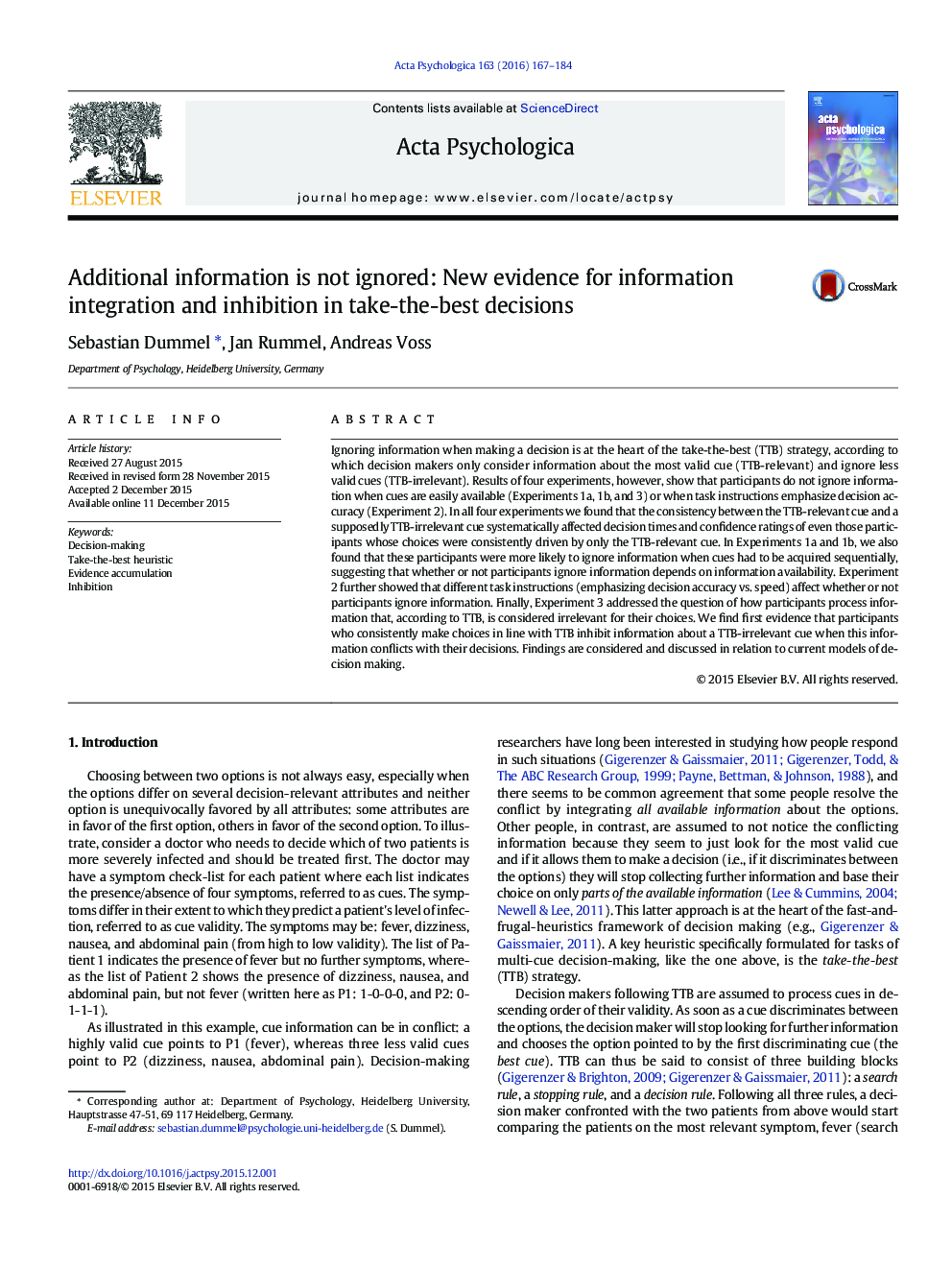| Article ID | Journal | Published Year | Pages | File Type |
|---|---|---|---|---|
| 7277178 | Acta Psychologica | 2016 | 18 Pages |
Abstract
Ignoring information when making a decision is at the heart of the take-the-best (TTB) strategy, according to which decision makers only consider information about the most valid cue (TTB-relevant) and ignore less valid cues (TTB-irrelevant). Results of four experiments, however, show that participants do not ignore information when cues are easily available (Experiments 1a, 1b, and 3) or when task instructions emphasize decision accuracy (Experiment 2). In all four experiments we found that the consistency between the TTB-relevant cue and a supposedly TTB-irrelevant cue systematically affected decision times and confidence ratings of even those participants whose choices were consistently driven by only the TTB-relevant cue. In Experiments 1a and 1b, we also found that these participants were more likely to ignore information when cues had to be acquired sequentially, suggesting that whether or not participants ignore information depends on information availability. Experiment 2 further showed that different task instructions (emphasizing decision accuracy vs. speed) affect whether or not participants ignore information. Finally, Experiment 3 addressed the question of how participants process information that, according to TTB, is considered irrelevant for their choices. We find first evidence that participants who consistently make choices in line with TTB inhibit information about a TTB-irrelevant cue when this information conflicts with their decisions. Findings are considered and discussed in relation to current models of decision making.
Related Topics
Life Sciences
Neuroscience
Cognitive Neuroscience
Authors
Sebastian Dummel, Jan Rummel, Andreas Voss,
